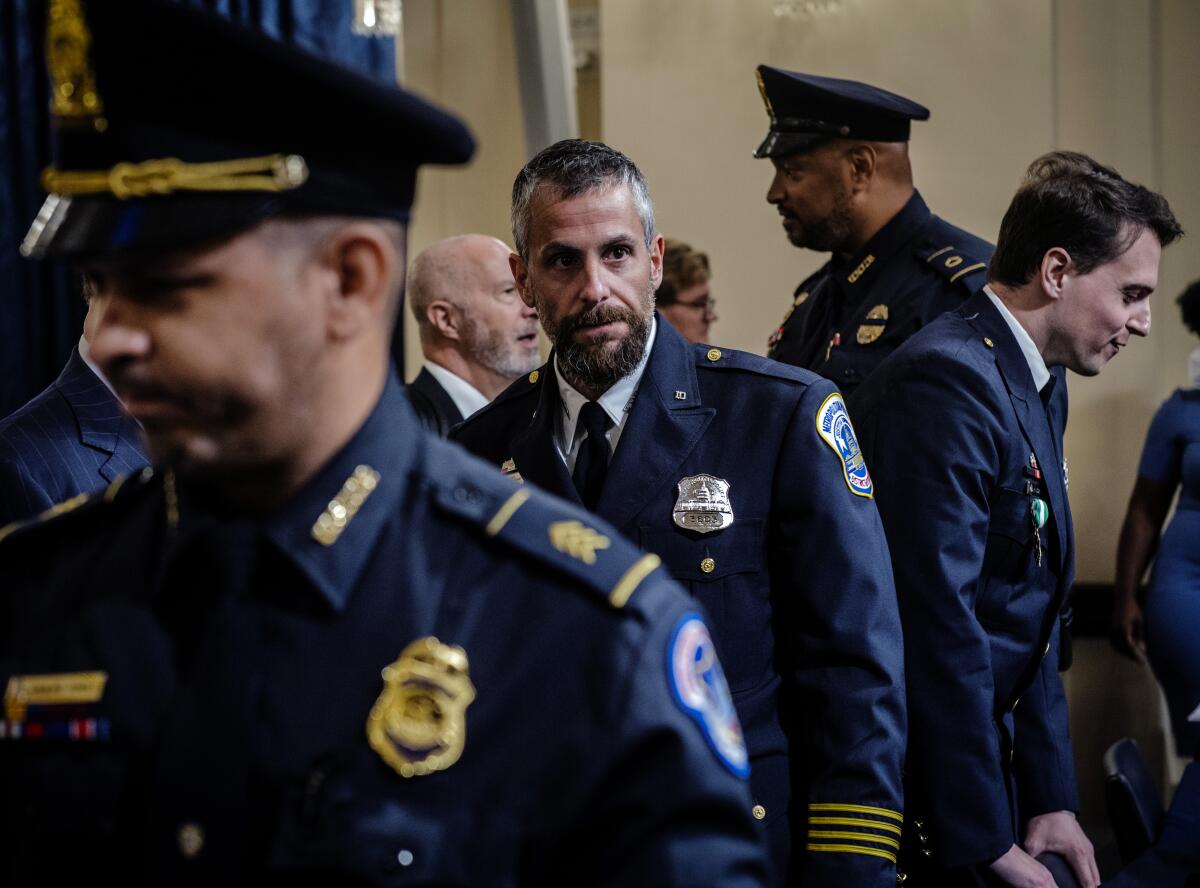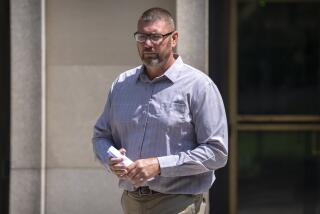A D.C. police officer who battled Jan. 6 insurrectionists shares what he learned

- Share via
WASHINGTON — Police Officer Michael Fanone suffered a heart attack after being badly beaten at the U.S. Capitol on Jan. 6, 2021, by a pro-Trump mob seeking to halt the congressional certification of Joe Biden’s victory in the presidential election.
Before he resigned last month from D.C. Metropolitan Police Department to pursue a job at CNN, the 41-year-old discussed the Jan. 6 insurrection, his difficult emotional and physical recovery from the melee and the fallout from telling the truth about that bloody day. This is a transcript of that interview, edited for length and clarity.
What really happened Jan. 6
When I look back on why I started speaking out publicly, most of it was born of this initial narrative that police officers that day didn’t use the proportionate force that they had during the Black Lives Matter 2020 summer protests. I knew that — from my experience of being there — to be unequivocally false.
I’ve come to learn there was a wide array of experiences that day among law enforcement officers. There were officers who maintained traffic posts who may have never seen any violent interactions between insurrectionists and law enforcement officers, and that may have informed their viewpoint of that day. Maybe only a few hundred of us had a similar experience to mine, which from what I’ve learned seems to be the pinnacle of violence at the Capitol complex, where police officers were fighting for their lives. At least the ones that I saw.
Dealing with the trauma
I had to deal with the physical and emotional experience on Jan. 6, which was difficult. But it wasn’t my first traumatic experience. In some ways, I think I was prepared for some aspects of that. What I was not prepared for was what happened afterward.
At one point I was going to three different types of therapists a week. I’ve overcome the trauma of that day, but I refuse to accept people’s lying about the reality of Jan. 6.
Voting for Trump
I succumbed to a lot of the rhetoric that was demonizing and villainizing the profession of law enforcement. The most difficult years as a police officer were between 2014 and 2016. Hearing people during racial justice protests and events degrade and demonize police officers made me angry. And like me, a lot of people in my profession started turning to the comfort food of right-wing media like Fox News.
I started to believe that Democrats were anti-police. And when Donald Trump came along and started espousing this pro-police rhetoric, I voted for him.
But then I got tired of being outraged at everything, and I recognized that things were not as bad at the ground level as they make it seem. And Trump’s grandstanding about his love for police when officers even would do things that were egregious and wrong: He voiced support in a way that felt incredibly manipulative and damaging. Trump doesn’t care about those relationships; he just simply wants the votes from police officers.
I voted for Biden in 2020, and over time, I came to understand that Black Lives Matter is a more legitimate social movement than maybe what Fox News might portray. Police officers are the backbone of the public safety infrastructure in this country. And they have been for a long time, and as far as I can see, they will be for the foreseeable future until we can reimagine not committing a crime, which I don’t see happening in the near future.
It’s an incredibly complicated, complex issue. But the reality is, we’re going to need police officers.
Why he speaks out
I don’t go on television to hear myself talk or look at myself on TV. I want to convey something specific and then try to drift back into obscurity to the extent that’s possible. It was important for the country to hear from a rank-and-file officer who felt that those actions were outrageous and that it was disgraceful. What’s the point of engaging in this if I’m not going to see it all the way through until the end? It’s important to my children and their children.
What happened to me Jan. 6 was horrific. What my family had to experience was horrific, but I’m trying to make lemonade out of lemons here.
A major part of the healing process for me has been speaking publicly about what happened. Had I been muzzled it would have had an incredibly adverse effect on my emotional state.
More to Read
Get the L.A. Times Politics newsletter
Deeply reported insights into legislation, politics and policy from Sacramento, Washington and beyond. In your inbox twice per week.
You may occasionally receive promotional content from the Los Angeles Times.











